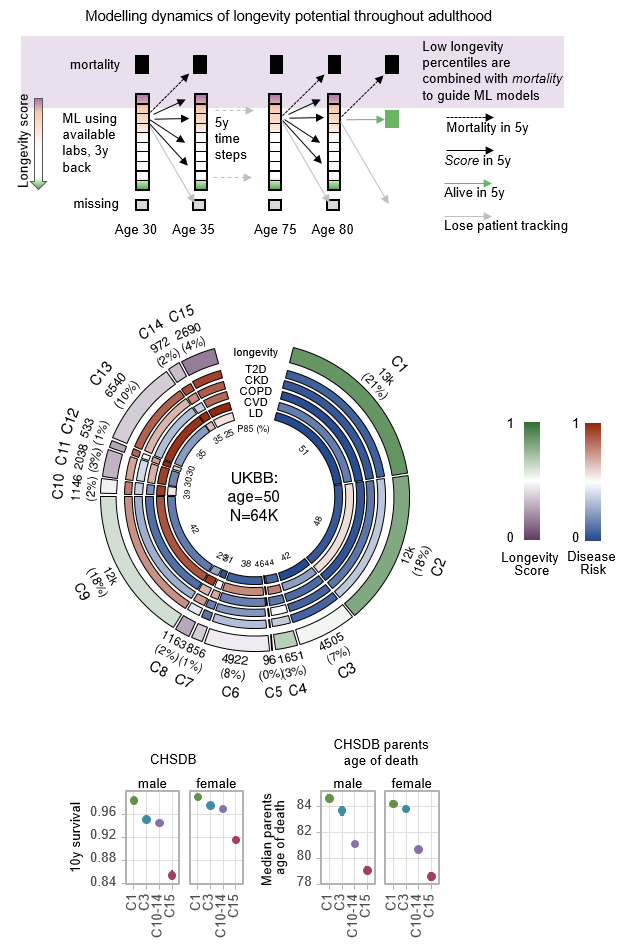To understand human longevity, inherent aging processes must be distinguished from known etiologies leading to age-related chronic diseases. Such deconvolution is difficult to achieve because it requires tracking patients throughout their entire lives. Here, we used machine learning to infer health trajectories over the entire adulthood age range using extrapolation from electronic medical records with partial longitudinal coverage. Using this approach, our model tracked the state of patients who were healthy and free from known chronic disease risk and distinguished individuals with higher or lower longevity potential using a multivariate score. We showed that the model and the markers it uses performed consistently on data from Israeli, British and US populations. For example, mildly low neutrophil counts and alkaline phosphatase levels serve as early indicators of healthy aging that are independent of risk for major chronic diseases. We characterize the heritability and genetic associations of our longevity score and demonstrate at least 1 year of extended lifespan for parents of high-scoring patients compared to matched controls. Longitudinal modeling of healthy individuals is thereby established as a tool for understanding healthy aging and longevity.

